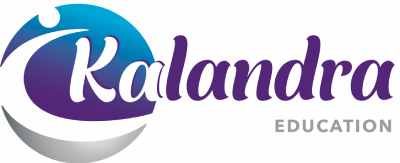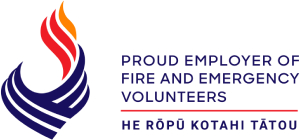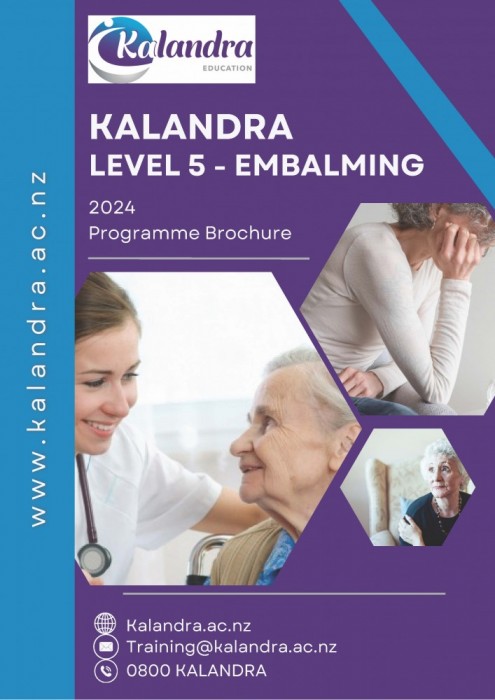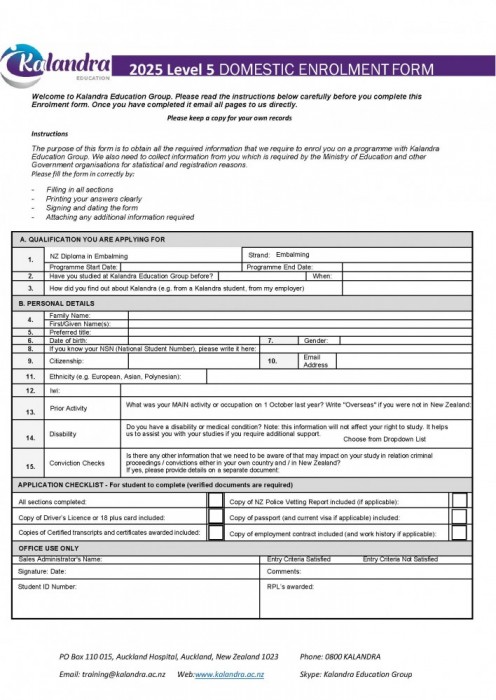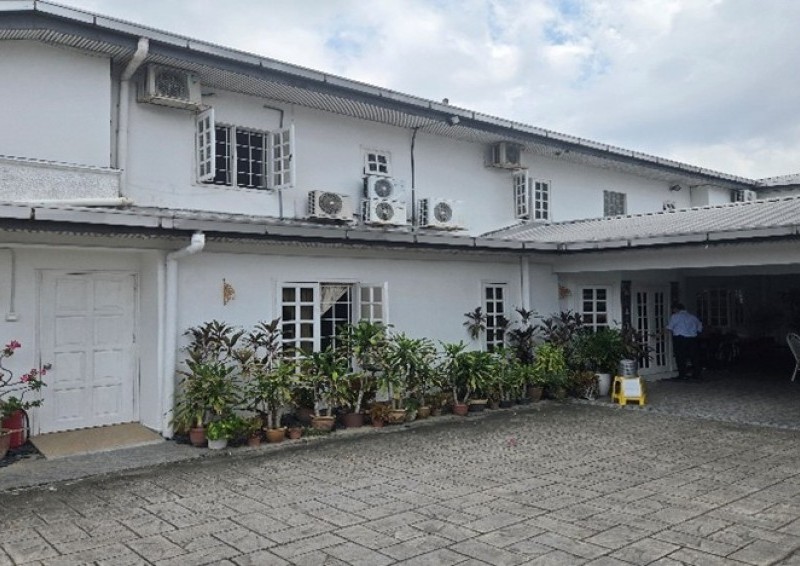Diploma in Embalming (Level 5)
Programme Start Date: 2026
Tuition Fee:
New Zealand Citizens or Permanent Residents - $8616.35 plus $4000 course related costs
Work Visa Holders - $13,000
Overseas students - $13,000 plus block placement fees and examination costs (approximately $3000)
Additional Costs (may occur):
- Police Vetting $25 (NZ)
- Travel, accommodation and insurance for those outside of NZ
Device (see at the end of the page places in NZ you can purchase a tablet or computer from)
Programme Overview
NZQF: Level 5
Total credits: 120
Delivery length: 52 weeks (including 4 holiday weeks). This programme is delivered ONLINE with block workshops.
Total learning hours: 1200
Directed online learning: 20 hours per week (webinars 2- 4pm Tues & Thurs NZ time )
Work placement: Mortuary hours in own place of work, workshops and other funeral homes and/or mortuaries as required. A minimum of 8 hours per week.
Information sessions:
Programme Purpose
This NZQA approved Diploma in Embalming (Level 5) programme is designed for those working in the funeral services sector who will require practical skills to endorse their theoretical knowledge.
Graduates of this programme will be able work independently, safely and with a knowledge of health and safety of the embalming process, on a dead human body.
The types of theory covered in the programme include:
- Professional Embalming
- Mortuary Layout and Maintenance
- Science within the Embalming Process
- Preparation for Embalming
- Specialised Embalming
- Embalming Presentation
- Embalming Practice
At successful completion students will be awarded the New Zealand Diploma in Embalming (Level 5).
The Diploma in Embalming (Level 5) programme is taught in seven modules:
Module 1 – Professional Embalming (15 credits)
The purpose of this course is for learners to develop a knowledge of New Zealand’s embalming history, including the growth of legal and ethical requirements and using this to underpin the application of the professionalism required for effective embalming, within the funeral environment.
Module 2 – Mortuary layout and maintenance (17 credits)
The purpose of this course is for learners to apply knowledge of mortuary design and operation, maintenance, and hygiene requirements within the embalming sector.
Module 3 – Science in the Embalming Process (20 credits)
The purpose of this course is for learners to gain knowledge of anatomy and physiology, micro-organism, and chemistry, in the context of embalming.
Module 4 – Preparation for Embalming (13 credits)
The purpose of this course is for learners to apply knowledge of the correct preparation procedures for embalming a dead human body
Module 5 – Specialised Embalming (20 credits)
The purpose of this course is for learners to apply knowledge of specialist embalming processes for a dead body.
Module 6 – Embalming Presentation (10 credits)
The purpose of this course is for learners to prepare a dead human body for viewing by bereaved families and whanau within a funeral environment.
Module 7 – Embalming Practice (25 credits) - This involves an external examination
The purpose of this course is for learners to apply knowledge of the correct surgical and cosmetic procedures for embalming a dead human body.
Programme Outcomes
At the end of the programme, graduates are able to:
- Conduct themselves in a professional manner, applying the code of industry conduct to embalming services.
- Have an understanding of Te ao Maori in relation to embalming in Aotearoa.
- Communicate with stakeholders throughout the process of embalming.
- Integrate knowledge of anatomy and physiology, the impact of micro-organisms on the process, chemistry and where required, specialised embalming skills for occasions such as those where trauma and disease has impacted the body. Whilst respecting the history and philosophies of the embalming process.
- Operate and maintain a mortuary, incorporating principles of efficient mortuary layout.
- Prepare a dead human body for viewing, by embalming or other care procedures, applying legal and ethical responsibilities.
- Embalm a dead human body, applying legal and ethical responsibilities.
- Work safely and comply with relevant regulations and managing the health and safety of themselves, others, and the environment, within the embalming sector.
- Develop skills in leadership, communication, and cultural responsiveness, during their programme.
Programme Pathways
Education Pathways:
Currently under development.
Employment Pathways:
Graduates will have the skills and knowledge required to work in the Funeral Service Sector as embalmers. This also allows them to work in areas where the body is affected by trauma and/or disease. Graduates may work in areas affected by natural disasters such as earthquakes, volcanic eruptions, or flooding with the potential for mass casualties.
Entry Criteria
Domestic Admission Requirements
Maturity Criteria:
- All applicants must be at least 18 years of age on or before the first day of the semester in which the proposed programme of study is offered.
Employment and Experience Criteria:
- Domestic applicants must be employed for a minimum of 12 months in the funeral industry such as an embalmer or mortuary assistant or 60 embalms .
- A letter of support from their employer, signed and stating that the learner will be supported in undertaking a minimum of 400 hours of employment for the workplace experience.
Academic Criteria:
- All domestic applicants must meet the NCEA Level 2 OR provide evidence of achievement at an equivalent level or any approved qualification at Level 3 or above on the NZQF. Domestic applicants over the age of 20 years who do not have the minimum entry requirements may be admitted.
- All applicants must attend an interview—the interview will determine academic capability, maturity level and the ability of the applicant to undertake studies at level 5 on the NZQF.
Police Checking:
- All applicants must have a clean criminal record (an initial check would be completed through the New Zealand Police by the learner’s employer to ensure that the learner is a fit and proper person to be working with vulnerable people).
- If evidence of a police check is not available, learners must consent to Kalandra undertaking a Criminal Record Check (as required) and advise Kalandra of any current charges or pending court matters.
Notes:
If a learner identifies an issue that may impact on their ability to complete the programme, the learner can discuss this with the academic staff member at an information session. Kalandra reserves the right to decline entry to the programme should an applicant’s police record be such that they would be considered unsuitable for the type of work to be undertaken whilst on this programme or by graduates of this programme. The guidelines on which this decision will be based are the relevant professional association or industry requirements.
International Admission Requirements (Work Visa Only)
Maturity Criteria:
- All applicants must be at least 18 years of age on or before the first day of the semester in which the proposed programme of study is offered.
Employment and Experience Criteria:
- Domestic applicants must be employed for a minimum of 12 months in the funeral industry such as an embalmer or mortuary assistant or 60 embalms.
- A letter of support from their employer, signed and stating that the learner will be supported in undertaking a minimum of 400 hours of employment for the workplace experience.
Academic Criteria:
- Have English language competency as demonstrated by achievement of IELTS academic with an overall band score of 5.5 (with no individual band lower than 5.0) or a recognized equivalent to NCEA Level 2 Numeracy and Literacy. (IELTS results must be no more than 2 years old, upon application, and from one test)
Police Checking:
- All applicants must have a clean criminal record (an initial check would be completed through the New Zealand Police by the learner’s employer to ensure that the learner is a fit and proper person to be working with vulnerable people).
- If evidence of a police check is not available, learners must consent to Kalandra undertaking a Criminal Record Check (as required) and advise Kalandra of any current charges or pending court matters.
International Admission Requirements (Outside of New Zealand)
Maturity Criteria:
- All applicants must be at least 18 years of age on or before the first day of the semester in which the proposed programme of study is offered.
Employment and Experience Criteria:
- Applicants must be employed for a minimum of 12 months in the funeral industry such as an embalmer or mortuary assistant (exceptions may apply with indepth interview and employer support)
- A letter of support from their employer, signed and stating that the learner will be supported in undertaking a minimum of 400 hours of employment for the workplace experience.
Academic Criteria:
- International students must have gained, within 2 years prior to enrolment, an IELTS test result with an Academic score of 5.5 with no band score lower than 5 or the equivalent as per NZQA's Table of Internationally Recognised English Language Proficiency Outcomes for International Students or provide evidence of meeting other requirements described in Rules 18.2 to 18.4 of the NZQF Programme Approval and Accreditation Rules 2018.
- All applicants must provide evidence of achievement at an equivalent level to a qualification at Level 4 or above on the NZQF.
Police Checking:
- All applicants must have a clean criminal record from their own home country
Entry into New Zealand:
- All applicants must be able to travel to New Zealand to complete their block course requirements and examination (block course - 3 x 5 days plus a minumum of 4 weeks)
Interview
- All applicants are required to attend an interview, with a member of the academic staff (via zoom)
- All applicants must successfully demonstrate the capability of writing a sample text, equivalent to NZQA Level 2, at a minimum, or show in their Record of Achievement, they have English to the required level.
- All applicants must demonstrate maturity and commitment to codes and ethics of the embalming process.
To Apply:
NZ Citizen/Permanent Residents/Resident Visa Holders: Complete the application form and email along with supporting documentation to: training@kalandra.ac.nz
- Current ID (including residency status if applicable) - we recommend a certified copy of your passport, birth certificate, or certificate of citizenship*
- NZ Police Vetting Report: must be no more than two years old and should be obtained by employer. If a new one is required, we can request one for you and in this case the submission cost is $25 and must be paid to Kalandra prior to the request submission
- Letter of support from employer (this letter can include whether you have a current police vetting report)
Work visa holders: Complete this Application Form and email along with supporting documentation to: training@kalandra.ac.nz
- Certified copy of passport* and current work visa which must cover the duration of the programme
- Evidence of English proficiency results
- Letter/email of support from employer stating they are aware you are enrolling in the programme (this letter can include whether you have a current police vetting report)
- NZ Police Vetting Report: must be no more than two years old and should be obtained by employer. If a new one is required, we can request one for you and in this case the submission cost is $25 and must be paid to Kalandra prior to the request submission
Overseas students: Contact us today - training@kalandra.ac.nz
- Certified copy of passport*
- Evidence of English proficiency results
- Letter/email of support from employer stating they are aware you are enrolling in the programme and support the block courses and examination in New Zealand.
- Police vetting
*To be accepted as certified document(s), these now need to be signed and dated by a person authorised to take declarations. This could be a:
Justice of the Peace (JP) - find a JP
Lawyer
Barrister
Notary Public
Court Registrar or Deputy Registrar
Member of Parliament
Tuition is Online
It is required that you have internet and a device in order to complete your studies successfully. You need to be able to access: Facebook and our online learning platform. You must also undertake research online and produce documents using Microsoft Office - Word, Excel, PowerPoint etc.
Link to Mobile Compare which identifies internet providers and allows you to compare the options.
The following computer suppliers have competitively-priced example devices:
PB Tech - Off-lease computers
PB Tech - Home and study laptops
Warehouse Stationery
The Warehouse
Student Handbook: Click on this link to download the Student Handbook 2025/2026
Page updated: 21 July 2025
Back to programmes
